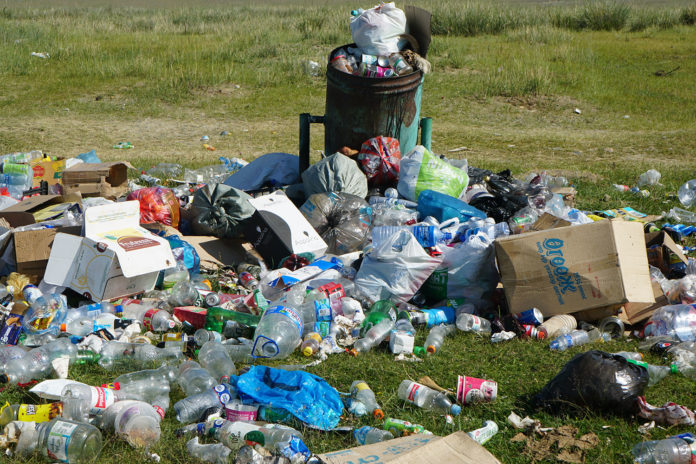While the importance of recycling is regularly hammered home to us, plastic waste around the world is at an all-time high, with more than 380 million tonnes produced every year. The problem is what to do with the billions of tons of plastic waste piling up in landfills and polluting our natural lands and water.
Now, engineers and scientists at the University of Texas at Austin have created an enzyme variant that can break down environment-throttling plastics – that typically takes centuries to decompose – in just a matter of hours to days. The plastic-eating enzyme has the potential to supercharge recycling on a large scale that would allow major industries to reduce their environmental impact by recovering and reusing plastics at the molecular level.
The project mainly focused on polyethylene terephthalate (PET), a polymer found in consumer packaging and certain fibers and textiles. The newly engineered enzyme was able to complete a circular process of breaking down the plastic into smaller parts (depolymerization) and then chemically putting it back together (repolymerization).
The first enzyme that allows bacteria to degrade PET plastics, called PET-degrading enzyme (PETase), was discovered back in 2016, but until now, it’s been largely unusable because it breaks down at high temperatures.
Now, the team has used a machine-learning system to predict mutations to PETases that might improve the thermal stability and activity of the enzymes. This involved studying 51 different post-consumer plastic containers, five different polyester fibers, and fabrics and water bottles all made from PET. Through this process, the researchers proved the effectiveness of the new and improved enzyme, which they are calling FAST-PETase (functional, active, stable, and tolerant PETase).
The FAST-PETase proved superior at breaking down PET plastics at temperatures between 30 and 50 °C and a range of pH levels. It was able to almost completely degrade 51 different thermoformed products in 1 week, and some were broken in as little as 24 hours.
The team next plans to work on scaling up plastic-eating enzyme production to prepare for industrial and environmental applications. They have filed a patent application for the technology and are eying several different uses.
“The possibilities are endless across industries to leverage this leading-edge recycling process,” said Hal Alper, professor in the McKetta Department of Chemical Engineering at UT Austin. “Beyond the obvious waste management industry, this also provides corporations from every sector the opportunity to take the lead in recycling their products. Through these more sustainable enzyme approaches, we can begin to envision a true circular plastics economy.”
